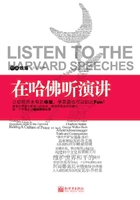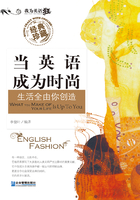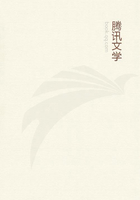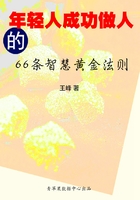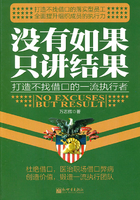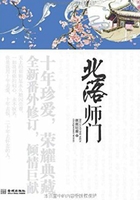VtEhTeERAN GENERALS with knowledge link colsely with wisdom of South; Liang Guangda sets up the "one-man bank"; essays criticising "Land Reform Right-Deviationism" in Guangdong appear in Party newspapers, injustices against Ye Jianying begin for his role in the movement;"Oh that he might be spared!" Mo Xiong, who served the Party bravely, barely escapes execution; amidst dangerously feverish emotions, would the uncharted waters into which the newly-reborn China was being drawn prove to be the shoals on which it foundered? A county-level Party secretary returns the Jeep he was awarded but did not deserve; the young cadre Xie Fei saves "Sweet Potato County" . . .
8
As North China was swept up in the tempestuous land reform campaign, the South was starting down the same path, pilot schemes being carried out in Guangdong in 1950. In the spring, the East River Regional Government convened a general meeting of cadres and secretaries from every county to begin prepara-tions for rolling out land reform across the area. In April 1951, the Lufeng County Land Reform Committee was founded. From the rest of the province's perspective, Lufeng had long been a home of the revolution, making it the natural choice to lead the way.
In charge of Guangdong at the time were the CCP Southern Provinces Bureau's provincial directors Ye Jianying and Fang Fang, both based in the province. They were familiar with local conditions in many of Guangdong's villages, and so were cautious about begin-ning land reform there: according to the summarised instructions accompanying the central people's government June 1950 Land Reform Policy, as a newly liberated area land reform in Guangdong was to be enacted differently to that in areas which had been longer under Communist control. Reform in recently liberated areas was to be done somewhat more mildly, more prudently. All action was to be well-led, well-planned and orderly, allowing land ownership to be reformed at a steady pace. This was along precisely the same lines as Ye and Fang had been thinking; Guangdong's land reform would be carried out by first awaiting instructions from the centre, then creating proposals that the next bureau up could ratify.
Ye Jianying, the highest-ranking offcial in the Southern Prov-inces Bureau, was the only member of the Party Central Committee in the Guangdong provincial leadership. Fang Fang was the third secretary - the second, Zhang Yunyi, was assigned to Guangxi. Amongst those working with the two of them were famous leader of the Guangdong peasant movement Gu Dacun, a reserve member of the Central Committee recently transferred back from the North-east, and Li Jianzhen who had been inducted into the Revolution by Peng Pai. These veteran generals, experienced in local conditions in the extreme south, convened the first general Party meeting in January 1950, Ye Jianying concluding by asserting that Guangdong's land reform had certain unusual characteristics: many Cantonese had settled abroad, so the land reform policy would need to be accompanied by policies concerning overseas relatives of families in the province; care also had to be taken of the returnees, 90% of whom were returning in poverty. For most overseas landlords, "the majority of the land and houses they own in the villages have been bought by money earned abroad by the owners themselves and remitted home for their purchase, in which respect they are distinct from the feudal landlord exploiting class . . . this should be taken into consideration." There were relatively many towns and cities in Guangdong, industry and commerce were relatively developed and many industrialists and businessmen had close links with Hong Kong. During land reform, Guangdong formulated a series of poli-cies to maintain normal industrial and commercial activity and procedure in the cities and to protect industry and commerce. Moreover, as well as a good number of patriotic individuals, the province had a large population of coastal fishermen, as well as many ethnic minorities (particularly on Hainan Island) with customary land traditions of their own, for all of which there needed to be specific variants of the policy in accordance with local conditions.
In the east of the province, as Xie Fei was busying himself alternately with requisitioning food and suppressing banditry, on top of which was added the task of supervising land reform, in Nanhai County on the Pearl River Delta, a young student in his early teens set out from his village, walking and hitching rides on boats until he reached Guangzhou, there entering himself for the entrance examination of the two revolutionary schools his family so admired: Southern China University and the South China Bank Cadre School. Both schools accepted this peasants' child, but the Cadre School was first to announce which candidates had been successful, at which point the boy turned down the university to become a junior cadre in the People's Bank. This boy was none other than Liang Guangda, later to lead the charge during the creation of special economic zones.
His education at the bank school did not last long before he was sent to work in the bank in his home county. His boss gave him a briefcase, a few rubber-stamps and a ledger, then sent him off to prosperous Jida Township to found a branch of the bank. Liang nervously asked:"When I get there, who should I report to? Who'll be my manager?"
"It'll just be you there; you'll be managing yourself!" his boss smiled.
So this young cadre set off, carrying all the assets of his bank in a briefcase, and arrived in Jida to take up his post. Borrowing a desk from the town government, he set up a bank in their offces. Land reform was just beginning in the area, but all the small stalls, workshops, teahouses, inns had remained unaffected. Liang, through his enthusiasm for serving the people and meticulousness in dealing with money, turned his "one-man bank" into a viable enterprise.
He worked hard for the local businesses, taking deposits and giving loans, and his bank's operations grew. His boss soon noticed the successes of this pioneering young businessman and began transferring him to other locations in need of banks, such as Guonan Village and Minle Township. The loan and mortgage repayments from businesses plus non-fixed assets of landowning families which had not been confiscated under land reform entrusted to his "one-man bank" would have filled a vault. Every night, he would go through the bank's inventory of unappropriated valuables with land reform cadres, making a list and categorising as appropriate, before sealing it with an offcial stamp. The next morning, he would go to the county bank, exchange them for cash and give the money to the cadres who would then distribute the cash amongst all families in the area. This went on for several years without a single error being made.
It seems hard to believe that in those turbulent years, the tradi-tionally pirate-infested waters of the Pearl River Delta had been to all intents and purposes tamed completely. Liang Guangda would transport money, valuables and high-value banknotes between village and city almost every other day, yet was never once held up. Often he was instructed by the central bank in Guangzhou to convey large quantities of money via the slow, man-powered boats of the day, giving him a Mauser pistol just in case. Like a calf too young to be afraid of tigers, whilst still a teenager Liang made every journey alone, swapping valuables for banknotes at his destination, never encountering any trouble going or returning.
Many years later Liang would look back wistfully on those days, when the Party's credibility with the people was at its apogee. It wasn't that people trusted him, an adolescent, to do their banking - they trusted that the Party and government would have chosen the right man for the job!
The first hints of what was to come appeared in Yangtze Daily, the offcial newspaper of the South China Bureau, of which the Southern Provinces Bureau was a part. The then First Secretary of the South China Bureau was none other than Lin Biao, held to be something of an authority on land reform within the Party and placed in overall charge of the movement in the South after having overseen its implementation in the North. Comparing its prog-ress in Guangdong to how events had transpired in the North, he deemed the situation to be insuffciently Right, much too "peaceful", and so an essay appeared in the Party newspaper attacking the "Guangdong Right-Deviationists". The Party secretaries of many Guangdong locales were named as members of a "Landlord Party", shortly afterwards being dismissed and replaced. The longer the movement went on, the more intense it became.
In order to strengthen the Guangdong land reform movement, the higher-ups imported a steady stream of northern cadres. But overseas links in Guangdong were strong, and with Hong Kong and Macau a stone's throw away, the province's openness to the world and the advantages it brought only incited stricter control from the land reform movement. The most extreme example of this was the resolution to execute by firing squad the "big landlord and reactionary offcer" Mo Xiong in accordance with "the will of the masses of North Guangdong".
Mo Xiong (1891-1980) was an almost mythical person. Grad-uate of the Guangdong Army College, he joined Sun Yat-Sen's United League in 1907, took part in the Huanghuagang Uprising in 1911, then after the Xinhai Revolution accompanied Sun Yat-Sen as an attendant. When Chen Jiongmeng mutinied and shelled the Presidential residence in Canton, he fought alongside Ye Ting and Ye Jianying, risking his life to get Sun to safety. Later, Sun Yat-Sen named him his direct subordinate as Commander-in-Chief. When the Kuomintang purged its ranks and split with the Communists in 1927, he suppressed the Guangzhou Uprising. When he had the uprising's commander Ye Yong surrounded on Mount Guanyin,[1] he saw that among the rebels were some of his former comrades-in-arms, and a number of women, he refused to press the attack further. He ordered his troops to fire into the sky, deliberately allowing Ye Yong's army to break out and escape to the Haifeng-Lufeng base. Later he served under Song Ziwen as head of the Shanghai Customs Police, all the while maintaining secret links with local underground Communist leaders Yan Xichun and Xiang Yunian. His ideology also became more aligned with that of the Party.
In 1934, he became chief of police in De'an County in Jiangxi, arranging for Xiang Yunian and other underground Party members to take up posts in his organisations. He took part in Chiang Kai-Shek's top-secret army meetings on nearby Mount Lushan and learnt about the tactics and deployment of the Fifth Encirclement Campaign that would be directed against Jiangxi Soviet. As soon as he got down from the mountain, he handed the plans over to Xiang Yunian. Xiang knew that the continued existence of the Party and the revolution were in peril, sneaking through the blockade lines disguised as a beggar and handing the plans to the central committee which was then led by Bo Gu, Zhou Enlai and Li De. When the Revolutionary Army top brass received the information they immediately retreated from Jiangxi Soviet before Chiang could deploy his troops, thus beginning the Long March.
In 1935, Chiang appointed Mo to head up the security services in Bijie Prefecture in Guizhou, hoping he could intercept He Long's Second Red Army. Mo deliberately deployed all his troops around Bijie City as if to prepare for a defence, in fact to allow He Long to slip past through the countryside. When Chiang heard about this he was furious, accusing Mo of collaboration and throwing him into jail in Nanjing. As a grandee of the Kuomintang, several powerful friends intervened. Chiang was unable to make anything stick against Mo, and had to release him. On his return to Guang-dong, he was appointed head of Nanxiong County just as the War of Resistance broke out and the Communists and Kuomin-tang began to co-operate for the second time. At the request of Gu Dacun, Mo released every single one of the several hundred Communist Party members and guerrilla fighters imprisoned within the county.
This long-time friend of the Party was made to suffer during the days of land reform. His role in suppressing the Guangdong Uprising was brought up time and again - who was to say he wasn't working for the landlords? A request was made to put him on trial in Yingde, and have him face a firing squad there and then if found guilty. The land reform leaders, newly arrived in the prov-ince and unaware of his historical contributions to the revolution, wrote their response in the paper, approving his trial.
Ye Jianying had been recalled to Beijing by then, and was too far away to help. When Gu Dacun, himself also under pressure, found out what was happening, he exclaimed "Oh, that he might be spared!" Straight away, Gu got in touch with Tao Zhu and explained Mo's past services, explaining how the life of this unrec-ognised hero whom even Ye regarded as a brother was hanging by a thread. He also called in Li Kenong, from the central intelligence bureau, to verify the story, and Mo was finally a free man. He was always treated with courtesy after that, living to the ripe old age of 89.
During land reform, many Cantonese cadres suffered from the misdirected zeal of "left-deviationists", which was undoubtedly linked to the underground Party's low profile during revolution. For a long time after the bourgeois revolution's failure, the Guangdong underground lost touch with the centre. After the Haifeng-Lufeng base was taken by the enemy, the Party moved its operational centre to Hong Kong, having no regular links with the central Party or Red Army. After the Long March and establishment of the base at Yan'an, it took even longer to reestablish links, by which time the centre had little to no idea of the situation in Guangdong.
As a result, much of the work carried out by the civilian forces of Guangdong during the War of Resistance and War of Liberation was not fully appreciated by Beijing. Even after the end of the War of Liberation, Cantonese leaders Ye Jianying, Fang Fang, Gu Dacun and Li Jianzhen were only appointed to relatively minor posi-tions in the Guangdong and Southern Provinces Bureaux. Nor did most northern cadres realise the extent of the Guangdong under-ground's struggle, not wanting to believe that they could conduct revolutionary activity so effectively when cut off from the centre. Some even went so far as to believe they were merely opportunists who'd come flooding back in from Hong Kong and Macau once the People's Liberation Army had cleared the enemy out.
There was also a lack of understanding of the complicated environment in which the Cantonese had fought. They could not understand why so many Cantonese cadres had come from well-off backgrounds. In the eyes of the Northerners, they stank of "intel-lectualism". During land reform, whenever a local cadre would attempt to speak against the execution of a landlord and his family, trying to curb what they saw as "excess killing", northerners would just see a rich peasant, or worse, another trying to protect his own. When a local attempted to stop the property of overseas Chinese or local capitalists being appropriated, their motivations would be instantly suspected. Whenever a local pointed out that back in the day such-and-such a landlord or police chief had helped the Party or even been a secret member of the underground, accusations of being part of the "landlord party" or a "traitorous gang" would never be far from northerners' lips.
It was generally held that as one of the last areas to be liber-ated by the army, Guangdong was not as politically developed as other provinces, and so the masses could not be trusted to weed out "right-deviationists" from amongst their cadres. That task fell to the northerners. Efforts to ensure ideological purity caused some 7,000 Guangdong cadres to suffer unjustly, which proved to be a huge setback for the local Party organisation. Later, when Ye Jianying was recalled to Beijing after opposing excessive behaviour by land reform cadres, Fang Fang and Gu Dacun were severely crit-icised. Li Jianzhen, one of only thirty-two female soldiers to have made it through the entire 1000km Long March, was demoted and sent to Huiyang County to "toughen her up". After that a "struggle against the anti-Party alliance of Feng Baiju and Gu Dacun" was begun, which developed into a province-wide campaign against "regionalism". Some 20,000 cadres were guilty by association, the largest-scale miscarriage of justice in Guangdong's history.
The "Three Antis", "Five Antis", "Anti-Rightist" "Anti-Right-Deviationist" and "Four Cleanups" campaigns came in a seemingly unending succession, eventually giving way to the Cultural Revo-lution. In all of these movements, local cadres bore the brunt of external hostility, with terrible results for the former underground local Party. Within a short time, even down to the middle ranks, it was diffcult to find any cadres in Guangdong who could speak Cantonese. This situation repeated outside the province as well:Ren Zhongyi, who would later become a pioneer of Guangdong's Reform and Opening Up, was working in the Northeast at the time of the Three and Five Anti- campaigns. The Northeastern Organisational Bureau categorised him as "fundamentally 'right-deviationist' in thought" and transferred him from Dalian, at the time the Northeast's most important city, to a remote posting in Songjiang Province (one of several smaller provinces in the far Northeast that would eventually be combined into Heilongjiang).
9
In October 1986, Ye Jianying passed away. At his memorial ceremony former General Secretary of the Central Committee Comrade Hu Yaobang read a eulogy. As he was listing the contri-butions Marshal Ye had made over his life, he suddenly said the following and brought the audience to tears:"When he led the Guangdong land reform movement, all the policy decisions he made in consideration of central directives and local conditions have been shown by history to have been entirely correct." After Liberation, Marshal Ye only did local work (in the capital as well as in Guangdong) for a relatively short period. Whilst it may have been less important than the lifetime his spent serving in the army and the Central Committee, at the very least it too was enough to merit space in his obituary whose length was so strictly limited. Why, so long after the fact, was land reform being brought up again only so it could be reiterated that he had been entirely correct? Everybody knew that Hu Yaobang had led the movement of the late seventies and early eighties to rehabilitate those unjustly accused. After entering the central government, Ye's diligence had won him the praise of Chairman Mao himself, but there was a historic stain on his record which dated back to the land reform movement.
By April 1994, the old cases were examined once again. The Politburo Standing Committee rehabilitated Comrade Fang Fang. It was decided that the black marks against his name for "land reform right-deviationism" and "landlordism" in 1952, "bureau-cratism" and "decentralism" in 1953 were without a basis in fact and repudiated. Rehabilitation was mandated for Fang Fang and others like him who suffered at the hands of "left-deviationists";to be rehabilitated by a Politburo Standing Committee decision was exceedingly unusual. It's clear from this that the problems that arose from land reform in Guangdong were no ordinary prob-lems - historic mistakes were made, mistakes with profound consequences for the country's development. So, what exactly happened?
Problems with the Guangdong land reform movement began with the South China Bureau's criticisms, criticisms that were heard at the very top by Mao Zedong. In 1952 Mao convened a meeting of the central secretariat in Zhongnanhai to discuss the issue. What he heard infuriated him, and he ordered measures completely out of step with the style of discussion and management in which the policy has so far been implemented. Mao expressed his anger in a way designed to seem almost humourous, under which velvet glove was an iron fist. Pointing to Fang Fang he said "90% of your work has been good, but the remaining 10% has been to do with the central task of land reform, and you haven't been up to the task. Because of this, I'm demoting you a grade; Tao Zhu will take your old position. Fang Fang, I'm sending you back (to Guangdong), to endure three days of criticism from your colleagues."
Fang Fang's face turned red with shock, but all he could do wasaccept the demotion and begin strategising in private. To have been demoted by Mao personally, he knew it wasn't just so the Chairman could save face for his policy; something big, and bad, was about to happen. Never mind the property of overseas Chinese and industrialists, he wasn't sure he'd be able to protect himself! As expected, not long after he returned to Guangzhou Fang was labelled a "right-deviationist" and a "landlordist" and stripped of all his positions in the Southern Provinces Bureau and the Guang-dong Provincial Bureau. Just like that, his political life was over.
Soon after, Ye Jianying too was summoned to Beijing, althoughhe was at least given the excuse of visiting "for his health". Mao was lenient to him, keeping him in Beijing as Vice Chair of the Central People's Government Military Committee and chief of the Armed Forces Supervisory Commission. Of the ten Marshals in China, Ye had one of the easiest assignments. Facing the criticism of the central leaders, he wrote a self-criticism accepting principal responsibility, saying:"To conclude, I take overall responsibility for the mistakes of the mistakes by the Bureau's leaders, including those of Comrade Fang Fang." He also apologised repeatedly to all his comrades in Guangdong.



